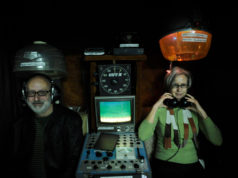The recent “coming out” of two celebrities provides a teachable moment in the subtle art of self-revelation and personal integrity. As you may have heard, 82-year-old actor and gospel singer Jim Nabors of Andy Griffith Show and Gomer Pyle U.S.M.C. fame announced this week he was marrying his longtime boyfriend in Washington state. As you definitely heard, Jodie Foster, 50, kinda sorta declared she was gay in an abstract, convoluted, semi-grumpy speech at the Golden Globes.
Neither actor was under any obligation to disclose anything about their personal lives. But both lived their professional lives in what has been called “the glass closet” –– in other words, most people assumed they played for Team Homo, but “don’t ask, don’t tell” ruled on that topic. Foster had been hounded by some LGBT activists for years, if not decades, to come out. Nobody really expected Nabors to utter a public peep about his family life.
Nabors’ age –– again, 82 –– and the fact that he didn’t have to acknowledge his orientation but did so anyway are what make his announcement quietly remarkable. Heteros are so accustomed to casually discussing their families in public, they often don’t realize how sad and insidious the closet is. And why would they? “Flaunting the straight lifestyle” has been the norm since the first gay wedding planner helped the first bride and groom sink a ridiculous amount of cash into flower arrangements. Nabors happily announced his own wedding ceremony, which happened to include the info that, yep, he was gay.
Foster kind of flubbed her big “coming out” by turning it into a grandiose speech that confused being private with being closeted. They overlap, but are not the same thing. (Question: Wouldn’t most heteros find it strange if, say, Brad Pitt refused to even acknowledge that Angelina Jolie was his life mate and co-parent? Answer: Yes, they would. That’s being closeted). Of course, Foster, like Nabors, had excellent reasons for being in the closet. Coming out as gay would’ve adversely affected her career, especially in the ‘70s. ‘80s, and ‘90s. (It might still have negative consequences; unlike Nabor’s career, Foster’s is far from over). In his era, Nabors would’ve faced outright ostracism and possibly even criminal prosecution.
So there you have it: The paradox of being gay. It isn’t a big deal, and yet, it’s an important, fundamental part of who you are. Nabors came out with class, Foster did so grudgingly and weirdly. But the important thing is –– they both did it. Congratulations, guys.













Golly. Surprise, Surprise. Shazam. Quallerbattoo.
I’ve said this before in other places, and I’ll say it here: Jodie Foster gets a pass on protecting her privacy because when she was a teenager, somebody tried to kill the president specifically to impress her. When that happens, you get to be as guarded about your private life as you want.